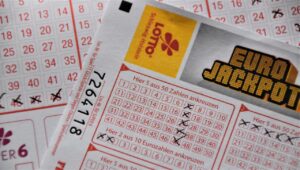Network marketing

The success of network marketing companies such as Amway, Herbalife, and Kleeneze has proved that the Multi Level Marketing concept can work if you choose to join the right company and if you approach these schemes with the right attitude and are prepared to spend a lot of money, in some cases 1000s in order to progress up to the highest level in the company.
Almost any product or service can be marketed through network marketing but the main players in the MLM industry seem to be those which focus on nutrition and personal care products.
Any company which promises high returns by recruiting others into the scheme with the absence of tangible products is likely to be a pyramid scheme which is illegal in many countries including New Zealand, Australia, Canada, The UK, and Ireland. The promoters of these schemes describe them as MLM or network marketing companies in an attempt to legitimize them.
If a proposition seems too good to be true then it most probably is, there is no such thing as a free lunch, if in doubt then seek legal advice.
The money to be made in network marketing is in the recruiting and training of others. The object is for your team members (the persons you recruit or sponsor) to duplicate your efforts.
Does this sound like pyramid selling.? Well you be the judge because there are some very well-known companies who sell products in this manner.
Amway which was established in 1959 was the frontrunner in the network marketing field. Herbalife (established 1980)
Then there is Melaleuca which sells products using tea tree oil. Melaleuca which is the botanical name for tea tree has tried to distance itself from the network marketing image by using the term referral instead.
All these companies would almost certainly scoff at suggestions that they are all pyramid schemes.
Many people who have reached the top of the tree in network marketing have done so only after investing a great deal of money (1000s) and in some cases going into debt but whether they have made any real money is another matter altogether.
The British company Kleeneze (established 1923), is different from other MLM companies in that agents drop off catalogues at people’s homes, collect them a few days later, and if there is an order deliver the goods to them perhaps a week to 10 days later. This method of selling is similar to Homecare direct shopping in NZ and Australia except that with Kleeneze, you can increase your income potential by sponsoring others into the business.
However as with other companies, finding other people who share your vision and that of the company is a problem.
Before you commit yourself to one company, do an internet search to find out how others have feared. You will find a lot of feedback in this way however please also bear in mind that the opinions of others may not be a reflection of the company but merely their attitude, the company they joined may not have been right for them and who is to say that is not the right one for you?.
Kleeneze is one company I had success with. By dropping off catalogues at houses then collecting them 2 or 3 days later hopefully with an order much the same as Homecare direct shopping do in New Zealand and Australia but the difference between Kleeneze and Homecare is that Kleeneze is a network marketing company.
Every Kleeneze agent gets 21% commission of all orders collected irrespective of their status in the company. These are orders obtained by dropping off catalogues at people’s homes, picking them up a few days later hopefully with an order and delivering the goods, collecting the money and paying the company minus your commission.
It is in the bonus structure where you can really make the money.
By introducing others into the business, their sales figures are combined with yours to form what is described as volume total.
You earn a bonus on your total volume orders for the month as follows.
Monthly total Bonus
650-1299 10%
1300-2249 13%
2250-3399 15%
3400-5000 18%
5100-7499 21%
7500+ 24%
There are other bonus payments available.

Kleeneze proved very lucrative just by dropping off the catalogues and developing a regular round of customers, I did have three people under me but they gave up after a week or so, one after owing me more than 300 pounds. That is not going to occur now as everyone who joins Kleeneze now has their own account
The main quality for success with any of these network marketing is passion for what you are doing. Without it you have not a chance of succeeding. Of course agents of the companies concerned will present the companies to you wearing rose tinted glasses, because everyone they sponsor into the business is helping to build theirs.
Melaleuca was a referral company I joined some time ago however I parted company with them when I lost my job.
Each person who joins Melaleuca agrees to purchase 35 points worth of product per month which equates to about $120. This is irrespective of whether you need any product or not. Agents can earn bonuses by referring others into the business. Agents require at least 8 referrals just to pay for their monthly order. A tall order indeed since the products are rather expensive, for example toothpaste around $9 and shampoo $19.95.
This business would suit people who have contact with others in high paying jobs where money is no object to them
Herbalife is the same but as with all of the other MLM companies, though agents may claim to have received cheques from them for xxx, the amount they have poured into the business is quite a bit more.
To sum up, don’t go into network marketing as a means to get rich quick with little effort, you will be disappointed. Go in with an open mind. Check the credentials of the company and whether it is the right one for you and most of all ask yourself this question “what motivates me”.? If you know the answer then it’s a start.

To summarise: Network marketing is not the best way to make money for the majority of people. The majority of people involved in these types of businesses are subsidising those at the top. If you are thinking of joining, keep an open mind and understand what you are getting involved in. Above all else, don’t allow anyone to pressure you into joining.
About this article
This article is of the opinion of the writer and may not be applicable to your personal circumstances therefore discretion is advised. You may use any or part of the article as content for your website/blog, or ebook.
www.robertastewart.com






























